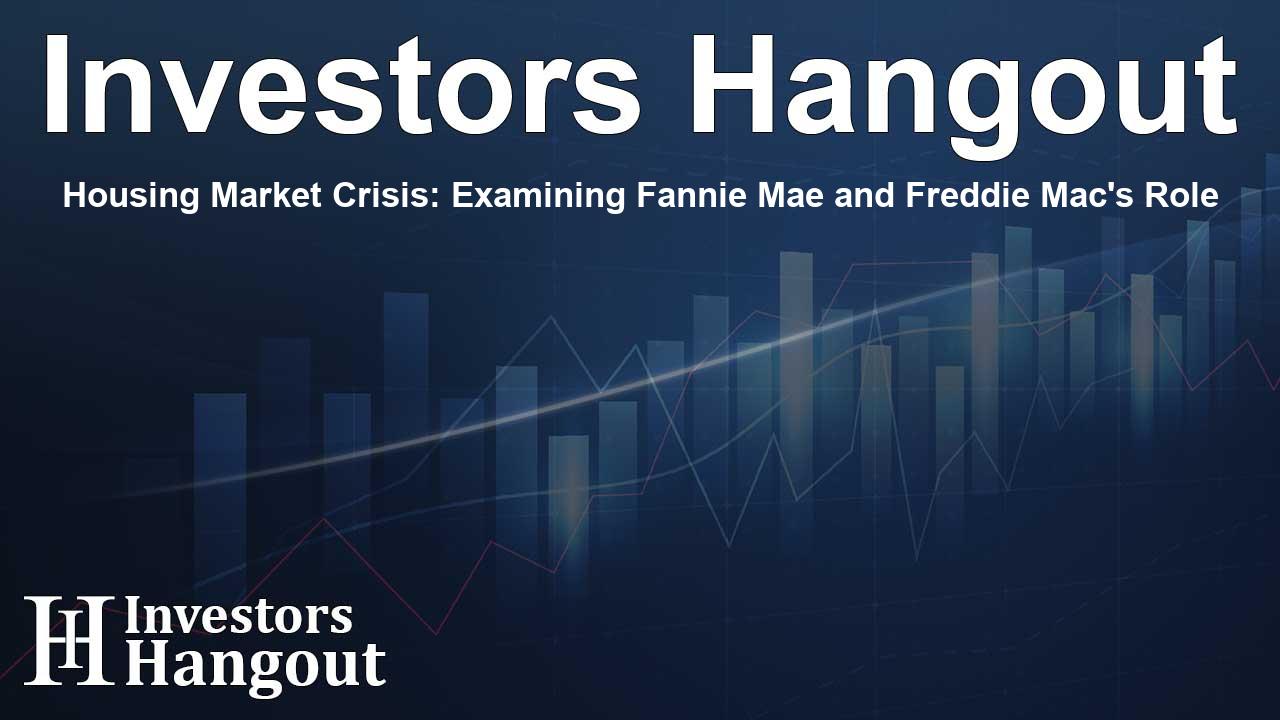Housing Market Crisis: Examining Fannie Mae and Freddie Mac's Role

Understanding the Impact of Housing Finance Institutions
Economist Peter Schiff has openly criticized the role of the leading U.S. housing finance entities, noting their significant contribution to the ongoing challenge of housing affordability in the nation.
Driving Up Home Prices
In a recent discussion, Schiff highlighted that the Federal National Mortgage Association (FNMA), commonly known as Fannie Mae, and the Federal Home Loan Mortgage Corporation (FMCC), or Freddie Mac, do not actually help make owning a home more affordable. Instead, he argues, their actions inflate demand in the housing market, subsequently driving prices higher.
Schiff pointed out, "By inflating demand, they jack up prices, forcing buyers to take on more debt," leading this pursuit of the 'American Dream' to evolve into a precarious debt trap for many.
The Role of Taxpayers in the Housing Crisis
With both Fannie Mae and Freddie Mac under government conservatorship since the 2008 financial crisis, Schiff states that the burden of these institutions could ultimately fall on taxpayers. He remarks, "Taxpayers will be left holding the bag" if these entities cannot stabilize and operate independently.
Calls for Reformation: Abolishment or Merger?
Schiff concludes his perspective by asserting that abolishing both organizations would be the most prudent course of action. This sentiment echoes a recent discussion surrounding the potential plans by President Donald Trump to end their conservatorship and rethink their operational structure.
Trump hinted at the possibility of merging the two entities as a unified force in the housing market. However, Schiff remains skeptical about this approach. He warns that merging these institutions could create a "moral hazard" exceeding previous financial crises, particularly if one entity monopolizes the mortgage market.
The Risks of Institutional Monopoly
Schiff believes that a merger could effectively create a monopoly, leveraging a government guarantee that may convert risky mortgages into what feels like safer investments, akin to U.S. Treasuries. He stresses that such a system could incentivize overly risky behavior from lenders.
While Schiff is critical of Trump's approach, others in the financial sector maintain a more supportive stance. Hedge fund manager Bill Ackman has praised this potential merger for its ability to streamline oversight and reduce bureaucratic costs since only one institution would require regulation from the Federal Housing Finance Agency (FHFA).
Looking Ahead
As discussions continue regarding the fate of Fannie Mae and Freddie Mac, stakeholders will be keenly observing how these developments unfold and impact the housing market.
Frequently Asked Questions
What is Peter Schiff's main argument against Fannie Mae and Freddie Mac?
Schiff argues that these institutions inflate demand for housing, resulting in higher prices and causing buyers to take on unnecessary debt.
How do Fannie Mae and Freddie Mac affect housing affordability?
According to Schiff, rather than making homes affordable, they contribute to escalating prices and financial difficulties for potential homeowners.
What does Schiff suggest about the future of these institutions?
He advocates for abolishing both organizations, warning against a merger that could create greater financial risks.
What concerns does he express regarding a potential merger?
Schiff warns that merging Fannie Mae and Freddie Mac could lead to a monopoly in the mortgage market, exacerbating the risks of another financial crisis.
Who supports Trump's plans for Fannie Mae and Freddie Mac?
Hedge fund manager Bill Ackman has expressed support for the merger, suggesting it could reduce oversight costs and streamline governance in the housing finance sector.
About The Author
Contact Addison Perry privately here. Or send an email with ATTN: Addison Perry as the subject to contact@investorshangout.com.
About Investors Hangout
Investors Hangout is a leading online stock forum for financial discussion and learning, offering a wide range of free tools and resources. It draws in traders of all levels, who exchange market knowledge, investigate trading tactics, and keep an eye on industry developments in real time. Featuring financial articles, stock message boards, quotes, charts, company profiles, and live news updates. Through cooperative learning and a wealth of informational resources, it helps users from novices creating their first portfolios to experts honing their techniques. Join Investors Hangout today: https://investorshangout.com/
The content of this article is based on factual, publicly available information and does not represent legal, financial, or investment advice. Investors Hangout does not offer financial advice, and the author is not a licensed financial advisor. Consult a qualified advisor before making any financial or investment decisions based on this article. This article should not be considered advice to purchase, sell, or hold any securities or other investments. If any of the material provided here is inaccurate, please contact us for corrections.
